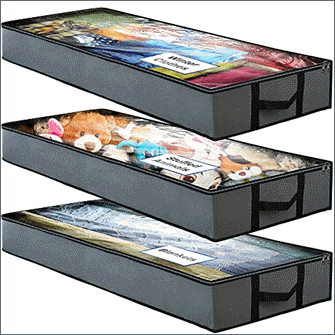
In today’s fast-paced, consumer-driven world, it often feels like products aren’t just a part of our lives—they are central to them. From the moment we wake up to the moment we go to sleep, products influence how we live, think, and interact with the world around us. In this article, we will explore how products shape our daily routines, emotional well-being, and even our identity. We will also discuss the impact of constant consumption, technological dependence, and the rise of digital products in our lives.
Let’s put it this way, there are more products on this Earth than there are humans.
The Power of Consumption
We live in a time when products are not just functional—they are a constant presence. Everywhere we look, there are new items vying for our attention, promising convenience, comfort, and happiness. Let’s look at the role consumption plays in our daily lives:
1. Constant Availability and Desire
- There are millions of products available to us at any given time—whether through retail stores, online platforms, or social media.
- Advertising and marketing encourage us to buy more, sometimes even creating a sense of urgency or a fear of missing out (FOMO).
- From essentials like food and clothing to the latest tech gadgets and beauty products, we are constantly surrounded by things to purchase.
2. The Cycle of Need and Want
- Our brains are wired to desire new things, and companies know how to tap into that desire to keep us coming back for more.
- Many products are designed with a “built-in obsolescence,” meaning they are made to break or become outdated, encouraging us to buy the next version.
Product Dependency: Technology as a Necessity
Perhaps no area of life reflects our dependency on products more than the realm of technology. We rely on tech for everything from work to entertainment, and many of us find it hard to function without these digital products.
1. Digital Devices
- Smartphones, laptops, and tablets have become central to our everyday lives, helping us stay connected, informed, and productive.
- We wake up to an alarm on our phone, check emails and social media throughout the day, and fall asleep scrolling through apps.
2. Smart Homes and Wearables
- Smart home products like voice assistants, thermostats, and security systems are increasingly common, making our homes more connected and automated.
- Wearables like fitness trackers, smartwatches, and even smart clothing are changing how we manage health, fitness, and our daily routines.
The Emotional Influence of Products
One of the most powerful ways products affect our lives is through emotional connection. The products we buy are often linked to our emotions, influencing how we feel about ourselves and others.
1. Identity and Status
- Many people define themselves by the brands they wear, the gadgets they own, and the homes they live in. Owning certain products can feel like a reflection of personal success or social status.
- Products are often marketed not just as tools or commodities, but as symbols of lifestyle and identity.
2. Retail Therapy
- In times of stress or emotional discomfort, many people turn to shopping for a sense of relief or temporary happiness.
- “Retail therapy” can provide a short-lived sense of control or pleasure, but it may also contribute to a cycle of over consumption.
Overwhelm and Clutter: The Negative Side of Consumption
While products provide convenience and joy, the constant accumulation of goods can lead to feelings of overwhelm and stress. As we purchase more, our living spaces can quickly become cluttered, and our minds can feel overwhelmed by the sheer number of choices available.
1. Decision Fatigue
- With so many products and choices at our disposal, decision fatigue can set in, making it harder to make simple decisions, like what to eat or what to wear.
- People often feel pressured by the abundance of options, leading to anxiety or even regret after purchasing.
2. Physical Clutter
- As we accumulate more products, we also accumulate more things to manage, organize, and maintain. Our homes, offices, and digital spaces can become overwhelming.
- Clutter can contribute to stress, make us feel unproductive, and even affect our mental health.
Sustainability and Ethical Concerns
One of the most pressing issues surrounding modern consumption is the environmental impact of the products we buy. The production, transportation, and disposal of goods contribute to pollution, waste, and depletion of resources.
1. Waste and Pollution
- The manufacturing and disposal of products lead to significant waste and pollution, contributing to environmental degradation.
- Many products, especially single-use items, end up in landfills, where they can take years or centuries to decompose.
2. Ethical and Social Responsibility
- As consumers become more aware of the environmental and ethical implications of their purchases, there is growing pressure on companies to adopt sustainable practices.
- Many people are now seeking out eco-friendly, fair-trade, and ethically sourced products, pushing for positive change in the marketplace.
The Rise of Digital Products
In addition to physical products, digital goods have taken over our lives in recent years. From social media platforms to streaming services, the virtual world has become just as product-driven as the physical one.
1. Social Media and Digital Platforms
- Apps like Instagram, TikTok, and Facebook are not just platforms for social interaction—they are products that keep us engaged and connected, often pulling us away from other activities.
- These platforms are designed to keep users hooked with endless scrolling, notifications, and personalized content.
2. Streaming Services and Digital Entertainment
- Platforms like Netflix, Spotify, and YouTube have transformed how we consume entertainment, offering products that keep us entertained 24/7.
- With a growing array of digital content, it’s easy to spend hours immersed in movies, shows, and music, contributing to the overall dominance of digital products in our lives.
Conclusion: Balancing Consumption and Well-Being
In today’s world, it’s nearly impossible to avoid the influence of products. They shape our routines, our identities, and even our emotions. While products provide undeniable convenience, pleasure, and connection, they also come with a host of challenges, from environmental impact to decision fatigue. The key to a fulfilling life in this consumer-driven age is balance. By being mindful of our consumption, making intentional choices, and prioritizing sustainability, we can take back control over the products that shape our lives.
Do you have a tip or trick on how to de-clutter, please leave it in the comment section below. Thanks for stopping by.

Optimize your storage with the NeatNestly SmartCube Under Bed Storage Bags – 3 Pack, an Amazon’s Choice product! With 14,195 ratings and a solid 4.3/5-star average, this storage solution is trusted by thousands of satisfied customers.
Recently purchased by over 900 customers last month, these durable, smart storage bags are priced at just $25.99. Plus, enjoy a lifetime warranty for ultimate peace of mind!
Support Techcratic
If you find value in Techcratic’s insights and articles, consider supporting us with Bitcoin. Your support helps me, as a solo operator, continue delivering high-quality content while managing all the technical aspects, from server maintenance to blog writing, future updates, and improvements.
Bitcoin Address:
bc1qlszw7elx2qahjwvaryh0tkgg8y68enw30gpvge
Please verify this address before sending funds.
Bitcoin QR Code
Simply scan the QR code below to support Techcratic.

Please read the Privacy and Security Disclaimer on how Techcratic handles your support.
Disclaimer: As an Amazon Associate, Techcratic may earn from qualifying purchases.














![Massive Apple deal event – M3 iPad Air all-time low, AirPods, M4 MacBooks $300 off, more [Updated]](https://techcratic.com/wp-content/uploads/2025/08/AirPods-Pro-2-AirPods-4-360x180.jpg)


























































![BASENOR 3PCS Tesla Model Y Model 3 Center Console Organizer [Carbon Fiber Edition]…](https://techcratic.com/wp-content/uploads/2025/08/71R5dfCR9FL._AC_SL1500_-360x180.jpg)















![Alien: Romulus – 4K + Blu-ray + Digital [4K UHD]](https://techcratic.com/wp-content/uploads/2025/08/81fBb0Z1egL._SL1500_-360x180.jpg)








